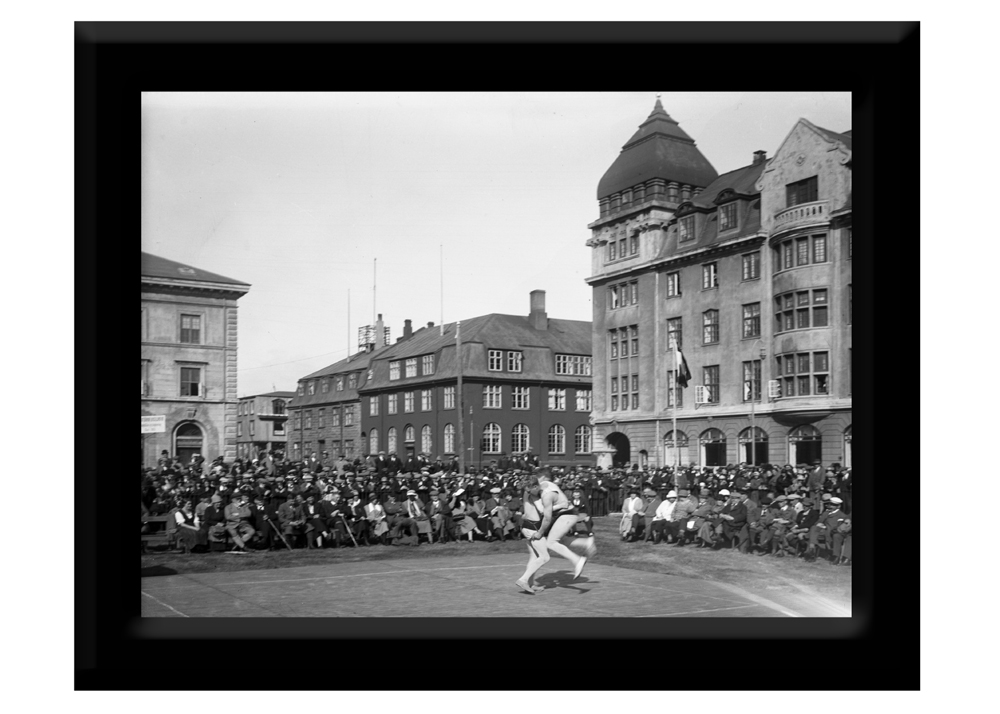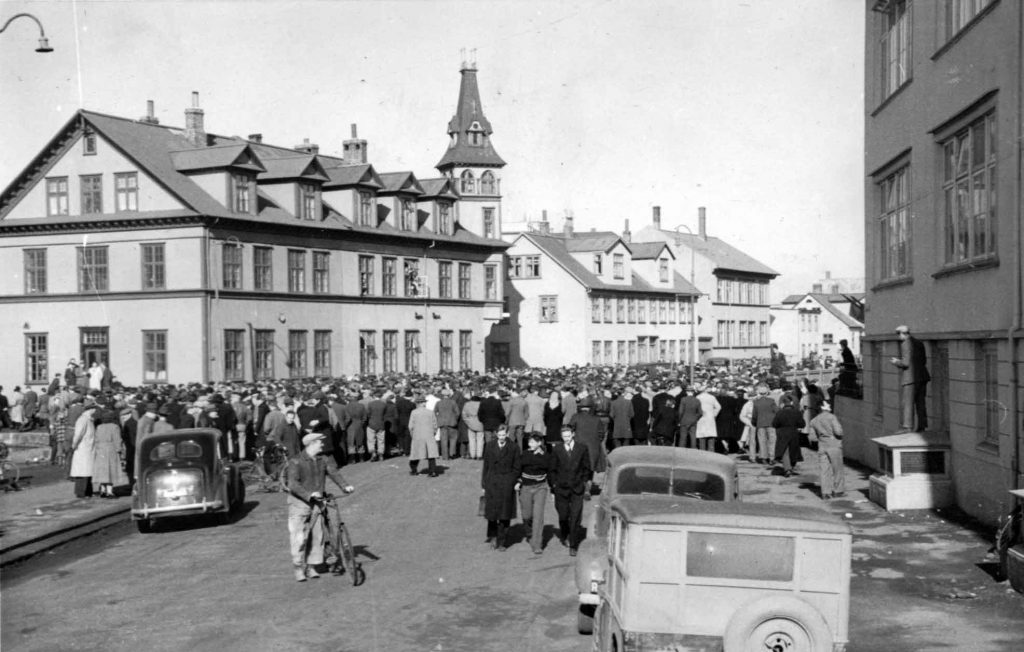Menntun, Menning, Minning: Education, Culture, Memory Posted by Meg on Aug 25, 2017 in Icelandic culture, Icelandic customs, Icelandic grammar, Icelandic history
Last Saturday, a friend and colleague (who I’d never met before) arrived in Reykjavik. Belgian by birth, she is a world traveler, entrepreneur, artist, and yoga teacher. She’d just returned from a trip to the desert, where she finds poetry, and was on her way to produce and direct an event in Antwerp called Poëziebordeel, or ‘the Poetry Brothel,’ in the Royal Museum.
She arrived on August 19th, the 22nd annual Culture Night in Reykjavik, to help me to produce a small, immersive theater popup with a band of merry poets. As we walked down the street – though the buses are all free on Culture Night, traffic lanes are closed within the city itself—she remarked, “It’s culture night, but where is the culture? It just looks like a busy shopping street.”
And busy it was. On Culture Night, or Menningarnótt, over 100,000 people flooded into the downtown areas of Reykjavik where, just the week before, I’d marched in support of LGBTQIA+ for the Pride Week (Hinsegin dagar; hinsegin is an adverb that means ‘on the other side,’ but is a generally accepted term for ‘queer’ & ‘dagar’ is the plural nominative form of ‘dagur’). And I thought to myself, it’s just tourists, it’s just locals drinking beer and enjoying free music. But where was the culture? I hate to miss the obvious, but what is cultural about culture night, and how much does it have to do with Icelandic culture, if my friend was looking for an ‘Icelandic’ experience (exclusive of the broader definition of ‘culture’ – arts, media, technology, etc.)?
[Grammar alert: menning is in the genitive singular in the word menningarnótt.]
‘Gakktu í bæinn!’ is the theme of the festival, which lasts from 1pm, when the Reykjavik marathon kicks off, and ends with a spectacular fireworks display. ‘Gakktu í bæinn’ means ‘come on in!’ – sort of like the phrase ‘gerðu svo vel,’ which is most like ‘please’ or ‘enjoy!’ or even ‘you first!’ when you’ve held the door for someone else. It also literally means ‘walk to town.’ I wasn’t able to find a solid history of this phrase anywhere, but it does appear in the rhyme celebrating the month of góa (begins somewhere between the 18th and 24th of February) the ladies’ equivalent of bóndadagur, when the lady of the house hops around the farm in her undies, inviting góa into the garden with this rhyme:
Velkomin sértu, góa mín,
og gakktu í bæinn;
vertu ekki úti í vindinum
vorlangan daginn.
Roughly:
Be welcome, my góa,
and come on in!
don´t stay out in the wind
all spring / all the live-long day
[Grammar alert: Note that vorlangan daginn is in the accusative case. Rule of thumb: duration is often marked with the accusative case in a given sentence, in the absence of a preposition. We’ll return to this later.]
So back to Menningarnótt: the organizers of the festival were obviously emphasizing Icelandic hospitality – being a good host and a good guest. Offering coffee to visitors, even when you have little; the guest, in turn, perhaps doing odd jobs to help out of giving a small amount of compensation, if possible.
Perhaps that’s what’s at the root of it all; while there weren’t streets full of Icelanders in traditional dress, visitors were invited into the Presidential residence. There were opportunities to learn about Viking culture and metalworking. Coffee and cakes were free on the streets of Reykjavik. A friend who runs the firm Huldufugl created a VR surrealist experience called The Box, in which you, the audience member, were trapped in an invisible box, with only one hope of getting out: a woman who appears in the box with you, but isn’t actually there (VR).
The event itself seems to be rooted in Icelandic history, even though it’s a relatively new cultural celebration. In 1786, when the “einokunarverslun” — or exclusive trade –between Denmark and Iceland was abolished, Reykjavik was awarded status as a “kaupstaður,” or “market town,” which meant that it was afforded “kaupstaðarréttindi” – the right to host markets, open shops and factories, et cetera. At that time, five other locations were given status as ‘market towns’: Grundarfjörður, Ísafjarðarbær, Akureyri, Eskifjörður, and Vestmannaeyjar.
And beyond its history as a celebration of, lets say, the commercial rights of Reykjavík, the night is – as culture is – a living being of its own, an exchange that takes place in open spaces and in dialogue. There’s an additional, perhaps coincidental, significance to the time of year during which Culture Night takes place: that day marks the beginning of the museums’ and galleries’ calendars of events – it is the New Year’s Eve of education, memory, creation.
To my ear, there’s a very pleasing etymological (and/or sonic) relationship between those idea(l)s in Icelandic: menntun, menning, minning. – Education, culture, memory.

Build vocabulary, practice pronunciation, and more with Transparent Language Online. Available anytime, anywhere, on any device.





